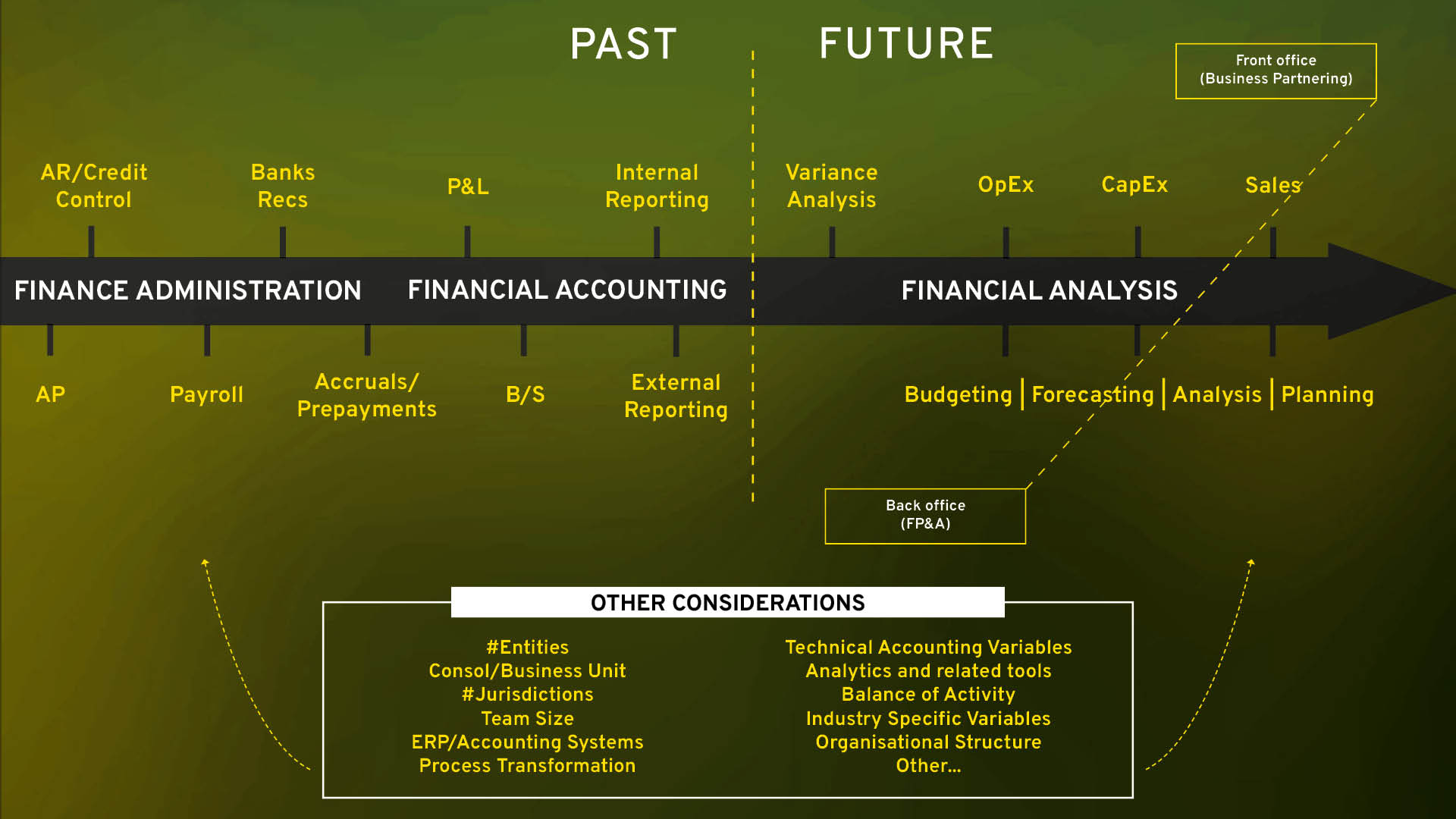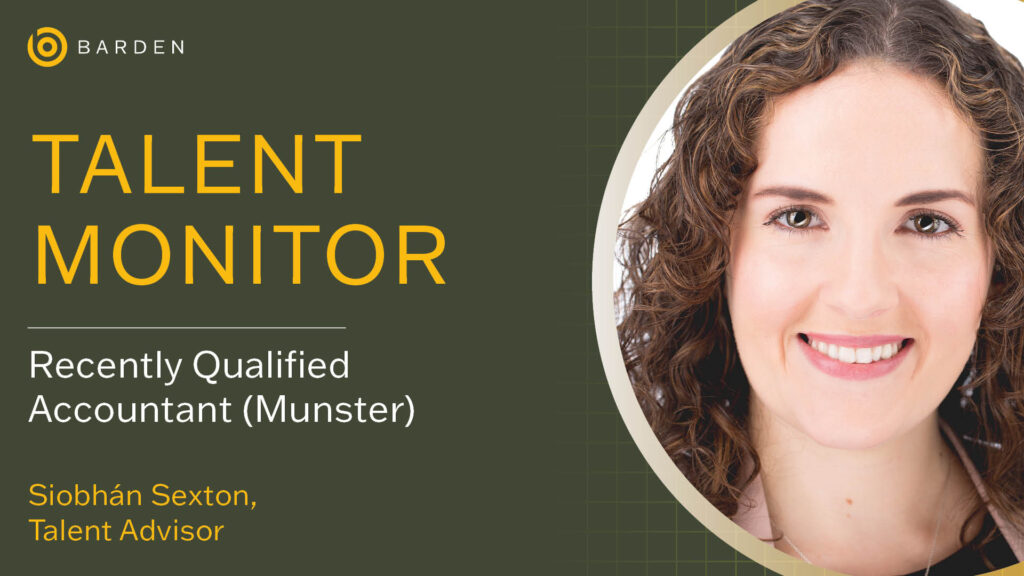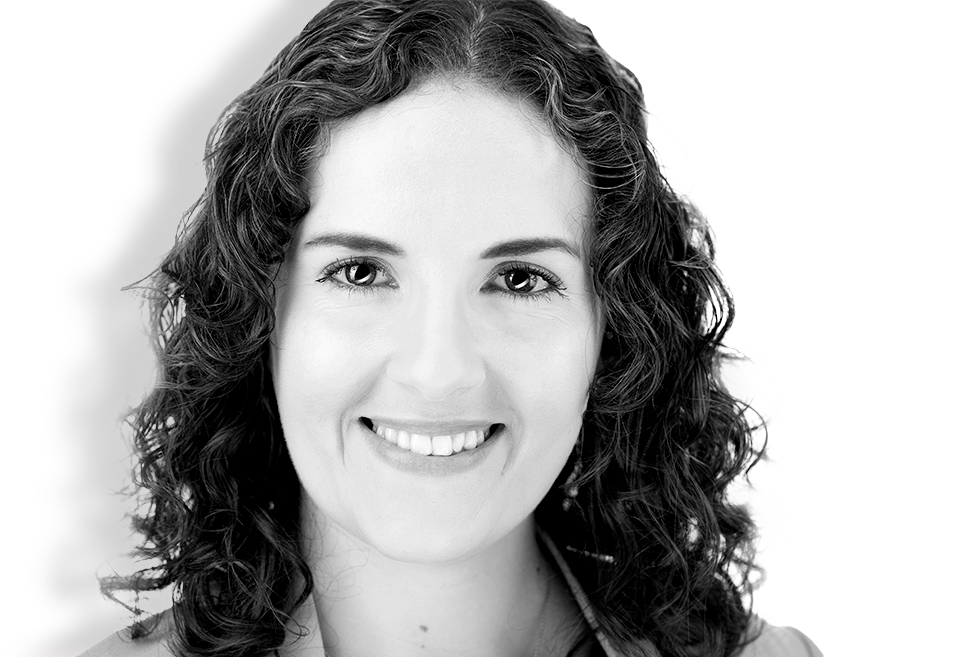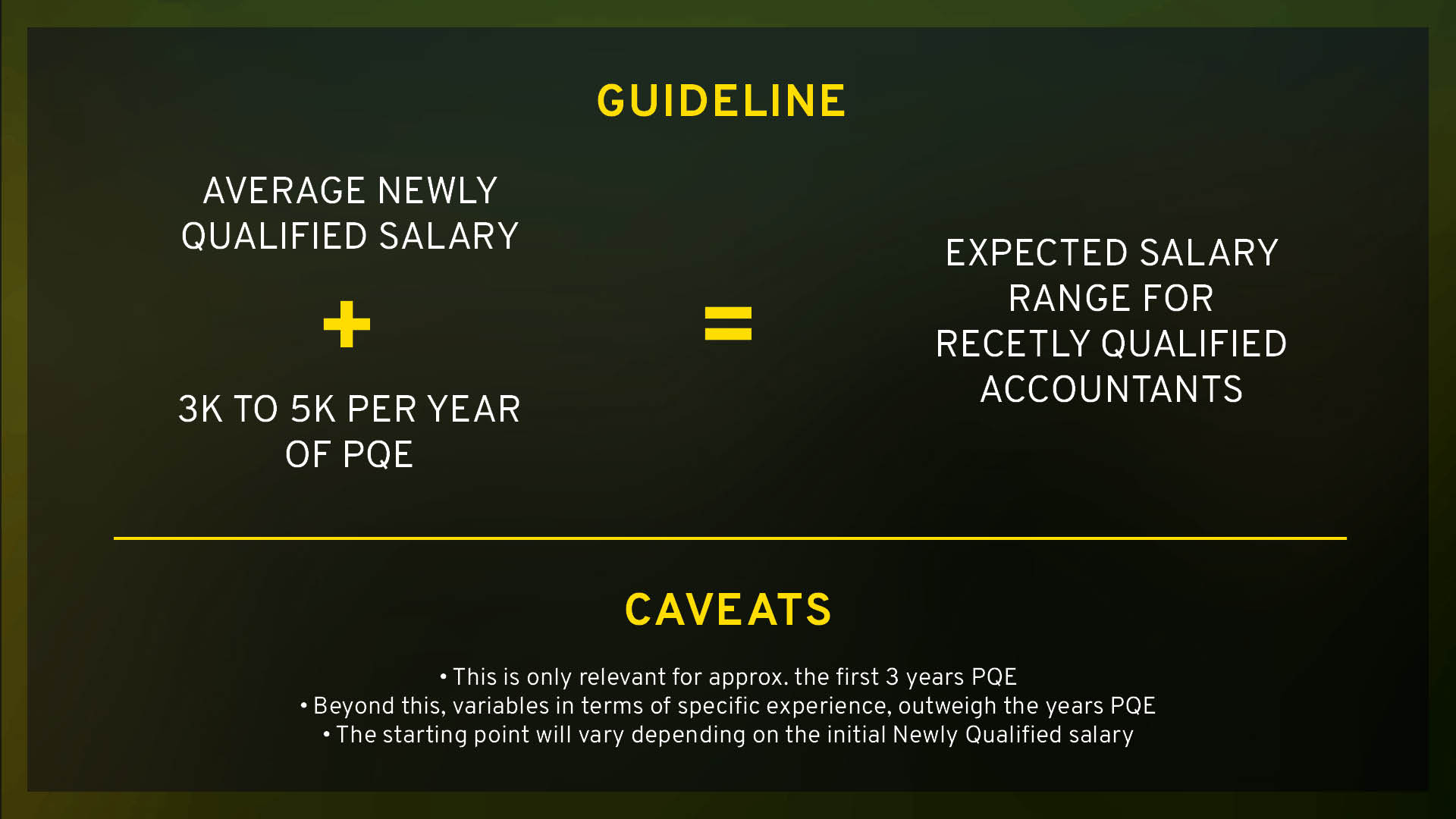Firstly, it’s important to establish who does the “Recently Qualified” segment of the accounting market refer to? Here in Barden, we define this as anyone with 1 to 5 years post-qualified experience. Accountants tend to change roles an average of 2 or 3 times within their first 5 years post-qualified, so this segment of the accounting talent pool is very buoyant but can also be a difficult space for employers to recruit for, particularly as peoples’ experience becomes increasingly specified.
#1 Base
For this part of the market, we’re going to focus on years of experience and business structure for Industry roles (non-practice) rather than focusing on job titles (titles can massively differ from business to business due to internal structures).
A useful tool to estimate base salaries is to take the Newly Qualified salary average in Munster (currently circa €60k) and add €3k to €5k per year of post-qualified experience. However, context is very important when considering salary guides and this tool should only be used as a guideline and is also only relevant for the first 1 to 3 years post-qualification.
Beyond that, the salary depends on several variables such as; how specialised the experience is, people management experience, size of team, scale of the business, scope of responsibilities, etc. From 3 years post-qualified onwards, these variables become more important and the number of years’ “PQE” becomes less relevant.
It is also important to note that newly qualified salaries have inflated over the last couple of years, therefore the starting point for some recently qualified accountants might be lower than the €60k mentioned above, i.e. when starting from a lower initial base salary, it might take longer to catch up with external market averages.
For bespoke advice please contact our team; siobhan.sexton@barden.ie (Munster) or brian.oconnor@barden.ie (Leinster).
#2 Continuum of Activity
Similarly to the Newly Qualified Talent Monitors, the continuum of the activity outlined below is what you will expect to see in any finance team/role. It ignores things like finance transformation, stat reporting, and tax… let’s keep it simple for now.
Two companies can be looking to hire a financial accountant, but the nature of their roles can be very, very different. The % of the person’s time spent on certain activities will be very important to the individual’s decision making.
Below is a visual representation of the activity in a basic finance team, along with some of the variables that come with the context of the role. The % of time your hire will spend on either side of the line below, along with the variables in their client/company experience compared to your company/needs, are critical considerations for you and your HR team.

#3 Demand vs Supply
- Demand:
- There is usually always a demand for accountants at this level, and things are no different this quarter. Employers are always looking for talent with hands-on experience who can hit the ground running and require little handholding.
- As a result of this consistent demand, competition for talent at this level is high and therefore it is usually a difficult level to attract talent.
- Supply:
- As mentioned above, Accountants tend to change roles/employers an average of 2 or 3 times within their first 5 years post-qualified, therefore, similarly to the newly qualified talent pool, the recently qualified pool is also relatively transient.
- Historically, there is also usually a steady stream of recently qualified talent returning from Australia/Canada/London with good PQE and can be immediately available to start.
#4 What are companies doing to attract Recently Qualified Accounting talent these days?
An important factor to consider when attracting Recently Qualified Accounting talent, is that there needs to be an incentive for someone to change roles.
A lot of recently qualified accountants who are actively looking for a new role are doing so because they are looking for a new challenge, an opportunity to gain experience in a new area or a change in their working environment.
This can give rise to challenges when looking to recruit talent that can hit the ground running, as people don’t want to move “like for like.” i.e. Experienced Group Accountants commonly look to gain commercial experience and look for FP&A or Finance Business Partnering roles, rather than looking for another role in a Group Accounting team.
When trying to attract talent, keep an open mind to the type of experience you’ll consider and what incentive this opportunity gives to the relevant talent pool. If you need someone who can hit the ground running and there is less time to invest time in training someone who is coming in with a different skill set, you might have to consider incentivising through other means, like salary or flexible working arrangements. Vice versa, if you are willing to consider a different background and you can invest the time in training them, you may not have to incentivise through other means.
In Barden, we understand that each team, role, and requirement is unique. If you would like to discuss what tactics and approaches would suit you, please feel free to contact Siobhán Sexton (Munster), Brian O’Connor (Leinster), our Recently Qualified Accountants Talent Advisory & Recruitment team here in Barden (siobhan.sexton@barden.ie; brian.oconnor@barden.ie); we’re where leaders go before they start looking for Recently Qualified Accountants talent.
This information is accurate as per January 2026 and will be updated periodically. Data sources include Barden Proprietary Data, LinkedIn Analytics and other 3rd party data sources. If you have a request and would like real-time information to inform your hiring decisions, contact Siobhán Sexton (Munster) at siobhan.sexton@barden.ie or Brian O’Connor (Leinster) at brian.oconnor@barden.ie.


 Jump Back
Jump Back


